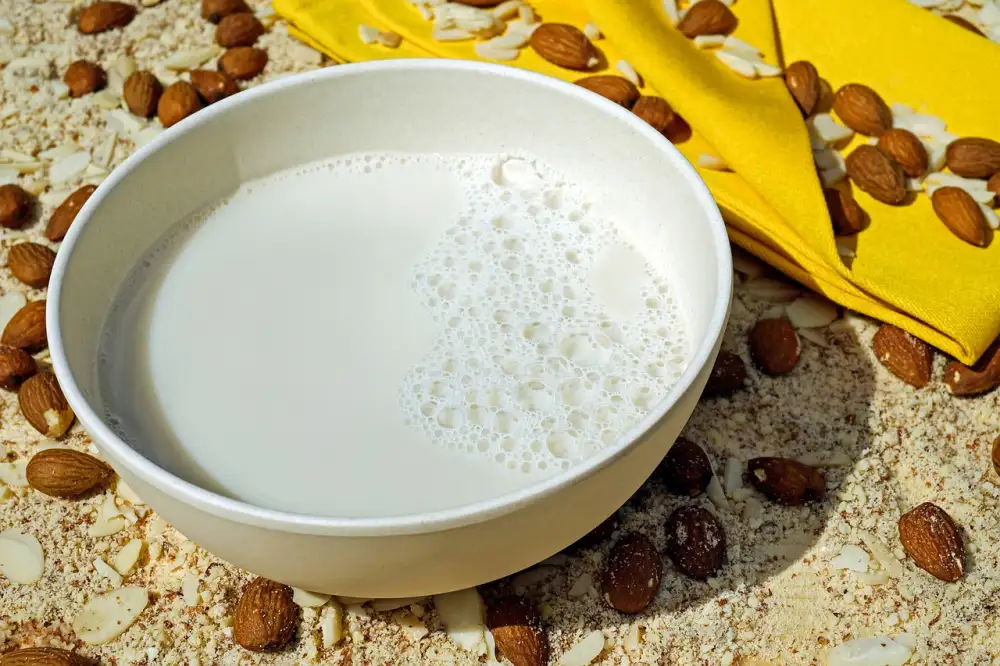Unveiling the Shelf Life Secrets: Does Almond Milk Go Bad? Unraveling the Spoilage Signs for Optimal Health

Almond milk has gained popularity in recent years as a nutritious and dairy-free alternative to traditional cow's milk. Packed with essential vitamins, minerals, and antioxidants, almond milk offers a creamy texture and a subtle nutty flavor that appeals to many. However, like any perishable food item, almond milk has a limited shelf life. Understanding the factors that affect its spoilage and knowing the signs of deterioration is crucial for ensuring optimal health and taste. In this article, we will unveil the shelf life secrets of almond milk, explore the factors that influence its longevity, unravel the signs of spoilage to watch out for, emphasize the importance of consuming fresh almond milk, and provide proper storage tips to extend its shelf life. So let's dive in and discover how to make the most of this delightful plant-based beverage!
Shelf life of almond milk
Shelf life of almond milk varies depending on various factors. On average, unopened almond milk can last up to a month past its expiration date when stored properly in the refrigerator. However, once opened, it should be consumed within 7-10 days for optimal freshness. It is important to note that these are general guidelines and the shelf life may vary depending on the brand and quality of almond milk.
Factors affecting the shelf life
Factors affecting the shelf life of almond milk include the quality of the ingredients used, the pasteurization process, and the packaging. Almond milk made from fresh almonds and properly pasteurized tends to have a longer shelf life. Additionally, the type of packaging can also influence how long almond milk stays fresh. Tetra packs or airtight containers are preferable as they prevent exposure to light and air, which can cause spoilage. It is important to consider these factors when purchasing almond milk to ensure optimal freshness and taste.
Signs of spoilage in almond milk
Signs of spoilage in almond milk can be easily identified with a few simple observations. Firstly, if the almond milk has an off-putting smell, such as a sour or rancid odor, it is a clear indication that it has gone bad. Secondly, if you notice any clumps or curdling in the almond milk, it is a sign of spoilage and should not be consumed. Additionally, changes in texture or appearance, such as separation or discoloration, are also indicators of spoilage. It is important to be vigilant and discard any almond milk that shows these signs to ensure optimal health and safety.
Importance of consuming fresh almond milk
Consuming fresh almond milk is of utmost importance for optimal health. Fresh almond milk retains its nutritional value, providing essential vitamins, minerals, and antioxidants. It also offers a creamy and smooth texture that enhances the taste of various dishes and beverages. By consuming fresh almond milk, you can ensure that you are getting the maximum benefits from this plant-based alternative. So, make it a habit to check the freshness of your almond milk before consumption to enjoy its goodness to the fullest.
Proper storage tips for extending shelf life
Proper storage is crucial for extending the shelf life of almond milk. To ensure optimal freshness, it is recommended to store unopened almond milk cartons in a cool and dry place, away from direct sunlight. Once opened, refrigeration is essential to maintain its quality. It is best to transfer the remaining almond milk into an airtight container and store it in the refrigerator at temperatures below 40°F (4°C). Avoid leaving the carton out at room temperature for extended periods as it can promote bacterial growth and spoilage. Additionally, always check the expiration date before consuming almond milk to guarantee its freshness. By following these storage tips, you can enjoy your almond milk for an extended period while ensuring its optimal taste and health benefits.
In conclusion, it is crucial to be aware of the shelf life of almond milk and the signs of spoilage to ensure optimal health. Fresh almond milk provides the maximum nutritional benefits and taste. By understanding the factors that affect its shelf life and following proper storage tips, you can extend its freshness. Remember to always check for signs of spoilage before consuming almond milk. So, go ahead and enjoy this nutritious dairy alternative, but make sure it's fresh for a delightful culinary experience.
Published: 08. 12. 2023
Category: Health



